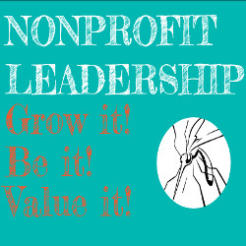Fundraising is facing a leadership crisis and the sector must act now to address deep-rooted cultural problems in charities, delegates at the International Fundraising Congress in the Netherlands heard yesterday.
Speaking at a session called 'The emerging fundraising leadership challenge', Tony Elischer, managing director of Think Consulting Solutions, said sector leaders were “pale, stale and male”, calling it “shameful at every level”.
He was joined in the session by leading women in fundraising; Rory Green, of Simon Fraser University in Canada; Maria Ros Jernberg, chief executive of the Swedish Fundraising Council; Joanne Warner, of Blue State Digital; Elise Ledsinger, of the US charity Humane Society International, and Lucy Gower, an innovation consultant.
Elischer said: “How do we manage growing talent and acquiring talent? We don’t, we just increase salaries and compete in the marketplace to recycle round the same people.
“For some people it means better salaries, but is that what we want? The need of our sector is getting bigger and bigger and we can’t keep up anymore - there’s not enough of us to go around. Where is the emerging leadership?”
The session imagined the fallout from a “leadership crisis in fundraising”, charities shutting down and the escalation of social and environmental problems.
Ros Jerberg said the warning signs were "alarming numbers" showing staff turnover, bad internal recruitment cultures and the cost of recruitment.
She highlighted a 2011 study that found 48 per cent of fundraising directors left their jobs for a higher salary, 39 per cent for lack of opportunities and 31 per cent because they wanted to leave the “old-school culture of fundraising”.
Ros Jerberg read extracts from interviews with fundraisers, who were not named. One said: “Our CEO hates fundraising, we rely on donors, but she acts like donors are a nuisance.”
Another, a major gift fundraiser, said she was paid the least because she had a “lack of experience”, despite raising the most money in her all-male team. Ros Jerberg said this showed a charity failing to reward talent and appreciate diversity.
A fundraiser reported their CEO had set a $250m campaign target because he “liked the number”.
There were reports of being the fourth head of fundraising recruited over a period of five years. They came from commercial backgrounds with limited experience of fundraising and were not supported in their move into the charity sector.
Elischer said: “It would be easy to blame everything on white, middle-aged men, but the answer is not that easy.
“If you are one of the high-performing fundraisers you have to stop saying ‘yes’ every time the phone rings. It is time to put the sector's needs above your own needs. Start investing your time and knowledge in new talent and the emerging leaders out there.”
The session ended with a call to action to get fundraisers signed up to the 'Grow it, Be it, Value it' campaign to address the sector’s leadership challenge.
Delegates were challenged to value others and invest in future generations, make a change that will make a difference, create a movement, start a revolution, and invest in future leaders.









